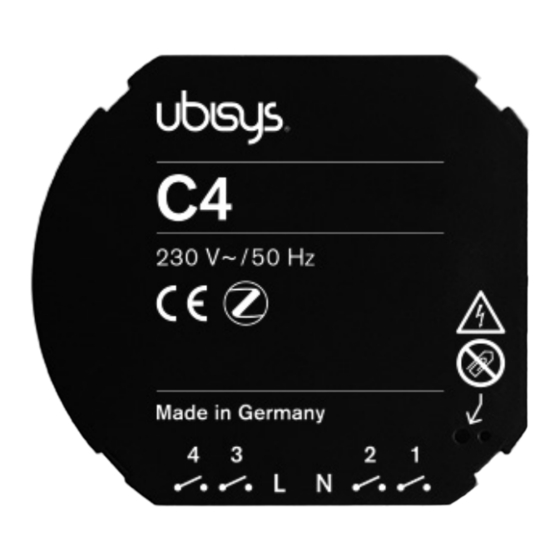
Ubisys C4 Integrator Manual
Zigbee device physical input configurations
Hide thumbs
Also See for C4:
- Quick start manual (2 pages) ,
- Quick start manual (2 pages) ,
- Quick start manual (2 pages)
Table of Contents
Advertisement
Quick Links
Advertisement
Table of Contents














Need help?
Do you have a question about the C4 and is the answer not in the manual?
Questions and answers